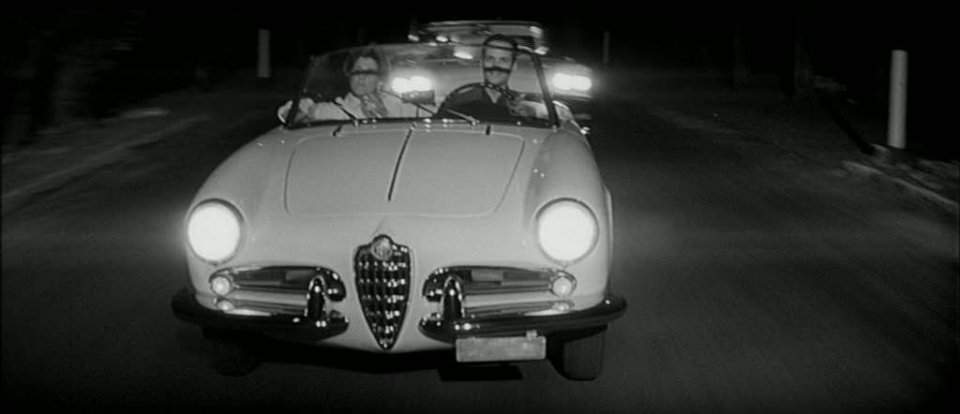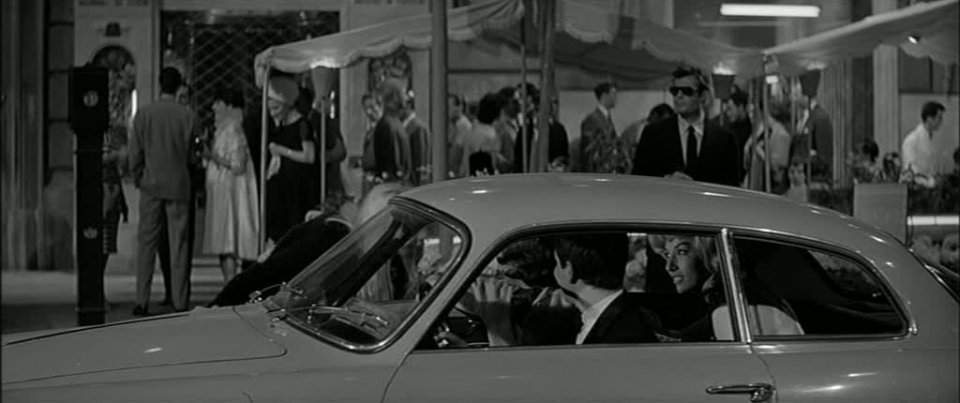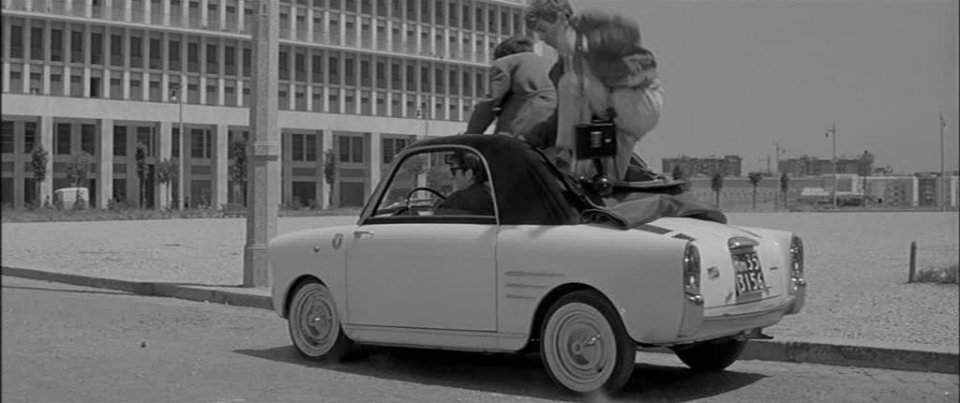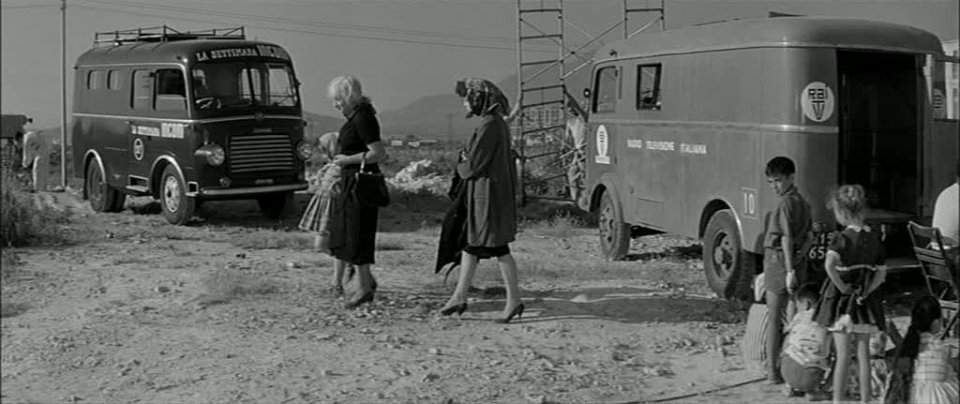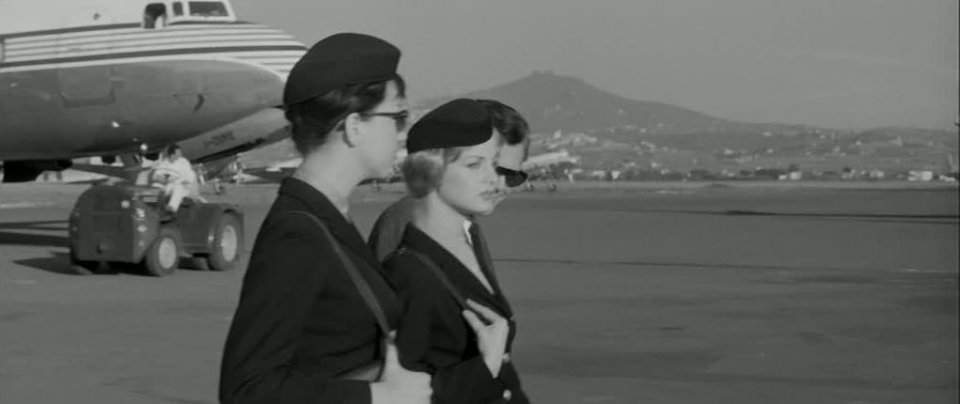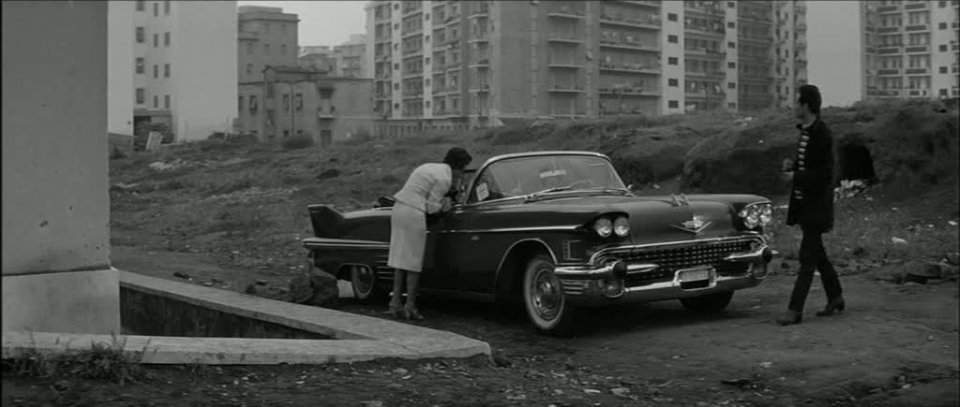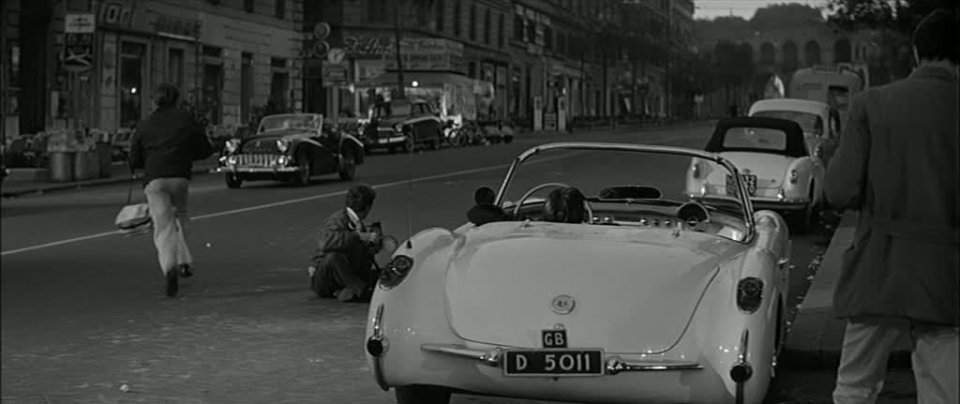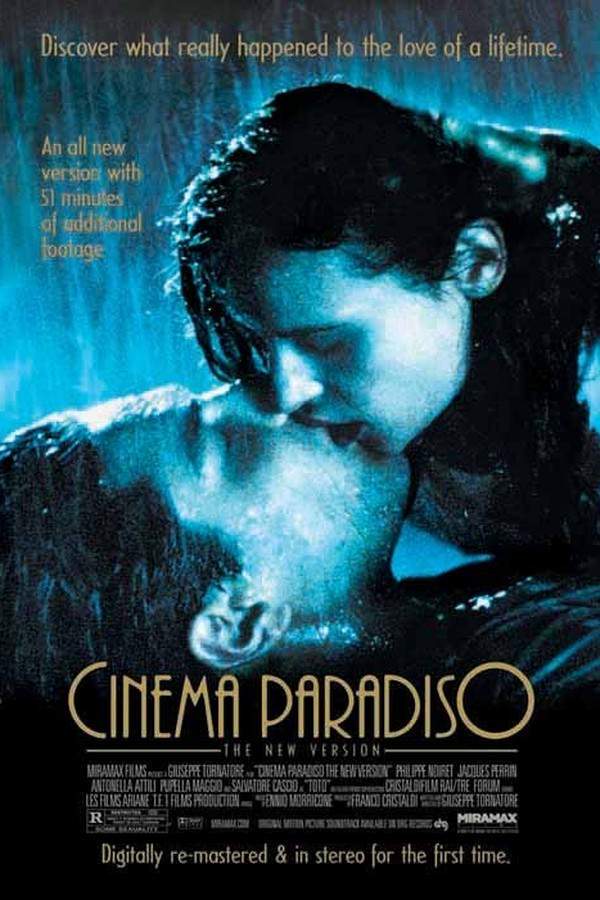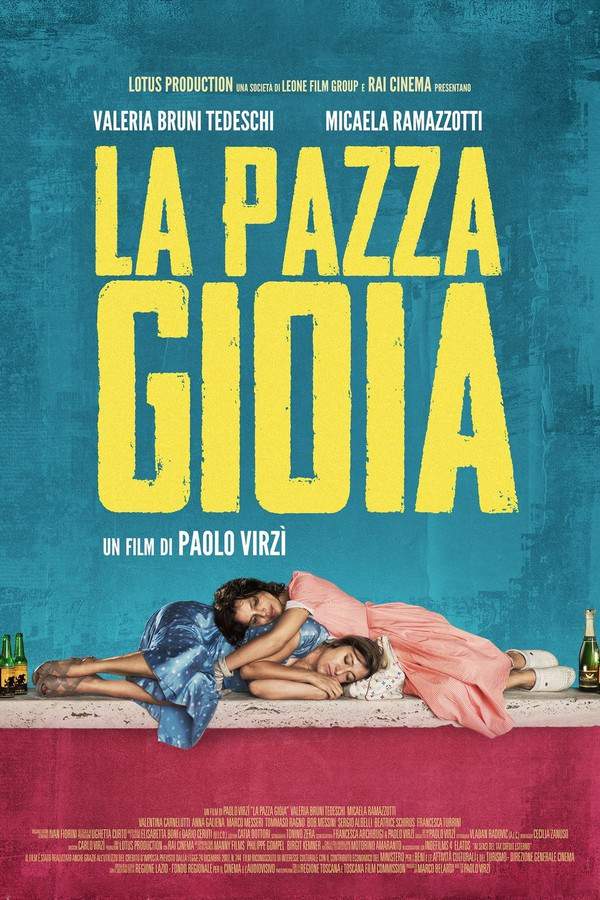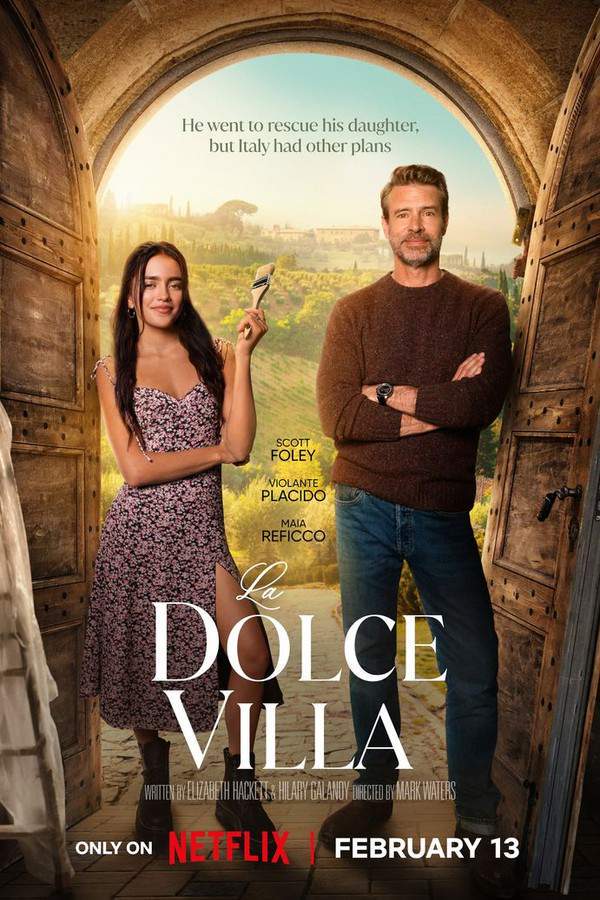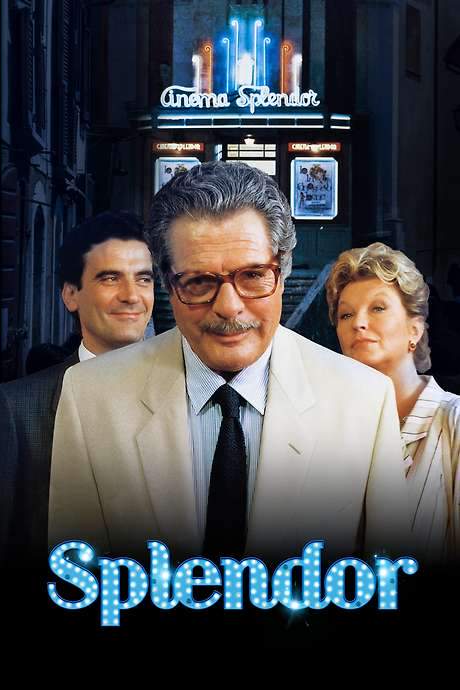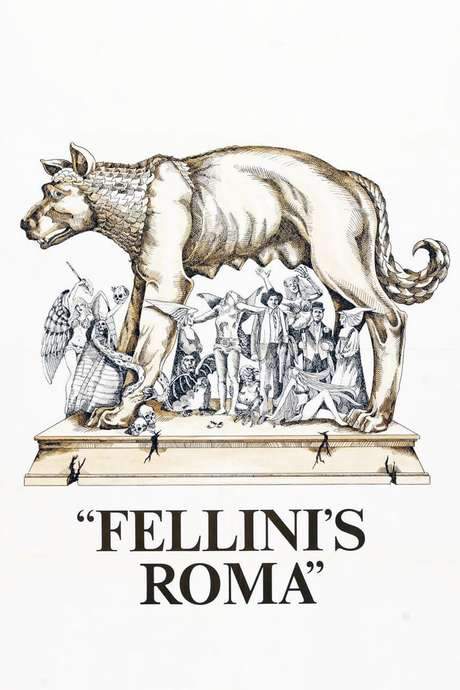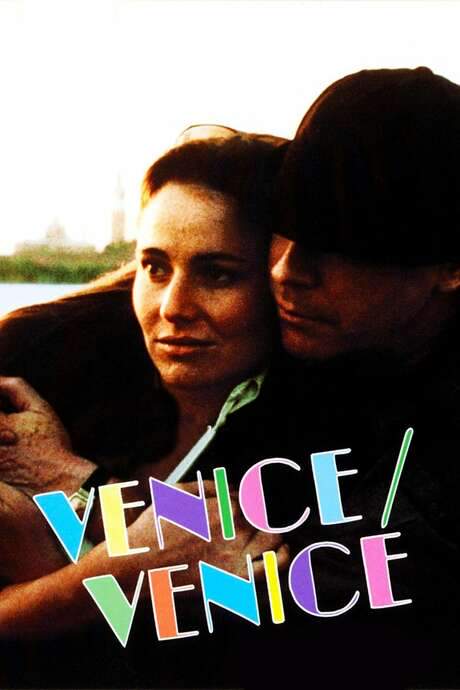La Dolce Vita 1961
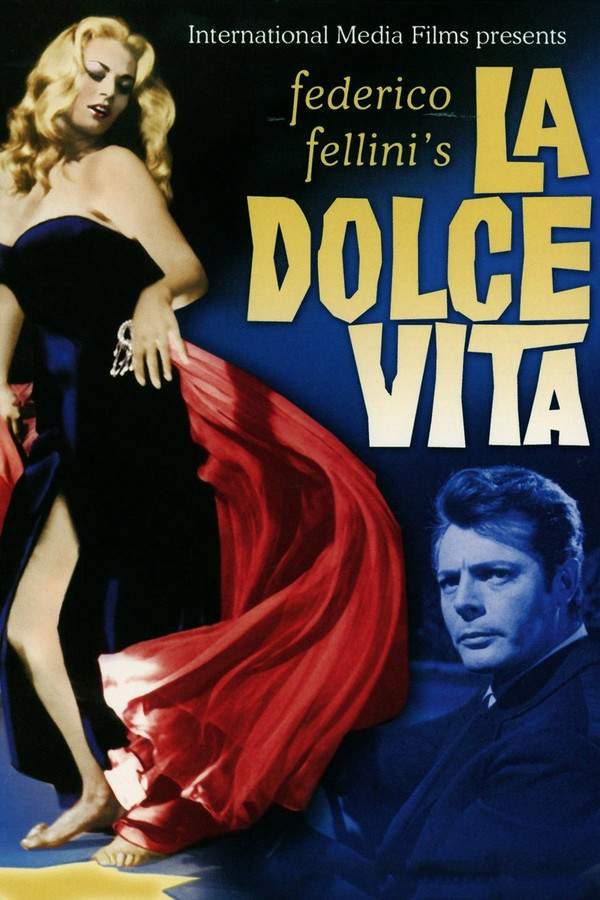
A charismatic journalist and photographer, Marcello, drifts through the vibrant and decadent nightlife of Rome in the 1960s. As he pursues fleeting romances and witnesses the excesses of the wealthy, he confronts a growing sense of emptiness and moral ambiguity, struggling to find meaning in a world of superficiality and disillusionment.
Does La Dolce Vita have end credit scenes?
No!
La Dolce Vita does not have end credit scenes. You can leave when the credits roll.
Meet the Full Cast and Actors of La Dolce Vita
Explore the complete cast of La Dolce Vita, including both lead and supporting actors. Learn who plays each character, discover their past roles and achievements, and find out what makes this ensemble cast stand out in the world of film and television.
External Links and Streaming Options
Discover where to watch La Dolce Vita online, including streaming platforms, rental options, and official sources. Compare reviews, ratings, and in-depth movie information across sites like IMDb, TMDb, Wikipedia or Rotten Tomatoes.
Ratings and Reviews for La Dolce Vita
See how La Dolce Vita is rated across major platforms like IMDb, Metacritic, and TMDb. Compare audience scores and critic reviews to understand where La Dolce Vita stands among top-rated movies in its genre.

95
Metascore
8.4
User Score


95%
TOMATOMETER

90%
User Score

81
%
User Score
Take the Ultimate La Dolce Vita Movie Quiz
Challenge your knowledge of La Dolce Vita with this fun and interactive movie quiz. Test yourself on key plot points, iconic characters, hidden details, and memorable moments to see how well you really know the film.
La Dolce Vita Quiz: Test your knowledge of Federico Fellini's iconic film 'La Dolce Vita' with this challenging quiz.
What mode of transportation does Marcello use to follow the statue of Christ across the city?
helicopter
car
bicycle
boat
Show hint
Awards & Nominations for La Dolce Vita
Discover all the awards and nominations received by La Dolce Vita, from Oscars to film festival honors. Learn how La Dolce Vita and its cast and crew have been recognized by critics and the industry alike.
34th Academy Awards 1962
Art Direction (Black-and-White)
Costume Design (Black-and-White)
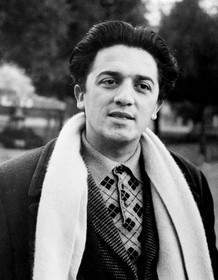
Writing (Story and Screenplay—written directly for the screen)
33rd Academy Awards 1961

14th British Academy Film Awards 1961
Best Film
Full Plot Summary and Ending Explained for La Dolce Vita
Read the complete plot summary of La Dolce Vita, including all major events, twists, and the full ending explained in detail. Explore key characters, themes, hidden meanings, and everything you need to understand the story from beginning to end.
As the sun rises over the storied ruins of ancient Rome, a helicopter gracefully transports a monumental statue of Christ through the city. Accompanied by the news chopper of Marcello Rubini, the paparazzo captures the stunning architecture of Rome, skillfully maneuvering his aircraft to follow the iconic figure. His attention is briefly diverted by a flock of bikini-clad beauties lounging on a high-rise’s rooftop. Attempting to charm them for their phone numbers proves futile, prompting him to refocus on the statue’s journey towards the magnificent Saint Peter’s Square.
Later that night, amidst the vibrant atmosphere of an exclusive nightclub, Marcello encounters Maddalena, an enchanting heiress. Their serendipitous meeting reveals Marcello’s comfort in the enchanting depths of Rome, while Maddalena longs to escape its magnetic pull. Their fateful rendezvous leads them to a sultry bedroom, where the flames of desire ignite.
The dawn brings a sobering turn when Marcello returns home to find his fiancée, Emma, in a precarious state from a drug overdose. In an emotional display, he professes his unwavering love for her, yet is soon distracted by the allure of Maddalena’s number lingering in his thoughts. His urgency to reach Emma sharply contrasts with the euphoric moments spent the previous night.
As daytime unfolds, Marcello sets out on a journalistic mission to cover the arrival of the mesmerizing Swedish-American actress, Sylvia, at Ciampino airport. A swarm of reporters buzzes around her, eager for the allure of celebrity exposure. Torn between his reporting duties and concerns about Emma’s well-being, Marcello struggles with his divided attentions.
At the end of Sylvia’s chaotic press conference, her inebriated boyfriend, Robert, stumbles in. Seizing the moment, Marcello suggests a private tour of St. Peter’s Basilica to Sylvia’s producer. With grace, Sylvia traverses the sacred location, inspiring Marcello to join her on the balcony overlooking the stunning square below.
As night descends, Marcello is entranced by Sylvia’s sensuous dance at the ancient Baths of Caracalla. Robert, oblivious to the charged atmosphere, busies himself doodling and reading the news, provoking a moment of revelation that sends Sylvia away, prompting Marcello and fellow paparazzi to pursue her. The pair eventually finds themselves framing their feet in the waters of the Trevi Fountain, entwined in the romantic allure of Rome’s magical night.
The next morning, a playful moment occurs when Sylvia splashes fountain water onto Marcello’s head, interrupting their bliss with the wrathful entrance of Robert, who unleashes his fury upon both. Despite the chaos, Marcello retains his composure amidst the tempestuous emotions swirling around him.
Subsequently, Marcello seeks solace within the walls of a church, where he meets his insightful friend, Steiner. Their engaging discussion reveals Steiner’s intellectual pursuits, highlighting the dichotomy of seeking material security versus a more profound love. As they ascend to the organ, their joyful experimentation draws the attention of an amused priest, who witnesses their rendition of Bach.
As the sun begins its descent, Marcello, accompanied by Paparazzo and Emma, embarks on a quest to the outskirts of Rome, drawn by rumors of a Madonna apparition. Though skepticism reigns in the Church, a multitude of believers and journalists flock to witness the potential miracle.
That evening, Emma offers a fervent prayer to the Virgin Mary, pleading for Marcello’s unwavering heart. Blindly following two children who claim to have seen the apparition, the frenzied crowd recklessly tears apart foliage, hoping to grasp remnants that once sheltered the Madonna.
In the aftermath of the event, the crowd grapples with despair as dawn breaks, mourning a child who was crushed in the throng—a tragic consequence of unchecked fervor.
An evening gathering at Steiner’s lavish abode introduces Marcello and Emma to a circle of intellectuals, whose artistic expressions flow effortlessly as poetry and music fill the air. Among them is the captivating British poet, Iris Tree, whose words resonate deeply with Marcello as she implores him: > “Stay free, available, like me. Never get married. Never choose. Even in love, it’s better to be chosen.” Emma, enchanted, dreams aloud of a similar future for herself and Marcello, prompting him to reflect on their uncertain path as he turns away, lost in contemplation.
Under the warm rays of the sun, Marcello confesses admiration for Steiner’s unwavering beliefs, only to reveal Steiner’s internal struggle between the comforts of materialistic life and the yearning for something deeper. Steiner’s musings highlight love’s vital importance in a seemingly indifferent world, interwoven with worries for his children’s future.
Regardless, Marcello channels his creative energy into writing at a seaside eatery, where the enchanting tunes of Perez Prado’s “Patricia” resonate. The captivating Paola, a waitress from Perugia, captures his curiosity; her ethereal beauty evokes images of divine subjects from Umbrian art.
As nightfall casts its veil over Rome, Marcello meets with his father along the iconic Via Veneto. The two, alongside Paparazzo, make their way to the ‘Cha-Cha’ Club, where Marcello reintroduces his father to Fanny, a stunning dancer who once enchanted him. The evening swirls with laughter as sentiments bring Marcello to share wistful reflections of his childhood, marred by the absence of his father. As the night winds down, Fanny invites Marcello’s father to her flat while two other dancers beckon Marcello, but he declines, choosing solitude as his companions vanish into the night.
Dawn finds Marcello alone on the empty street, gripped by anxiety upon learning of his father’s mild heart attack. Despite his father’s desire to leave Rome, Marcello implores him to stay, eager to rekindle their bond. However, his father’s determination to return to Cesena, weakened by his health, leaves Marcello despondent and abandoned in the bustling streets of the city.
That evening, Marcello finds solace with old friends on the Via Veneto, leading them to a sprawling castle at Bassano di Sutri where they revel in debauchery. Much to his surprise, he encounters Maddalena once more, yet their reunion is fleeting, lost amid the chaos of the party. Her words echo through the air, seeking a proposal that Marcello deftly avoids, only for another suitor to capture her attention. Finding a moment’s reprieve, Marcello comforts himself with Jane, a British artist and heiress.
As dawn breaks again, the party makes its way into the heart of the castle, greeted by the formidable matriarch, bound for mass, surrounded by solemn clergy. The stark juxtaposition of the night’s indulgence against the morning’s solemnity serves as a bittersweet reminder of life’s transience.
Later that evening, in a hushed moment with Emma, their quietude shatters when she lays bare her fervent love for him, leading to a climactic argument fraught with tension—an embrace turns violent with biting and slapping, culminating in her expulsion from his car. The melancholic hours stretch on as Emma, gathering flowers by the roadside, encounters Marcello as he returns. An awkward reunion replaces their earlier hostilities with silence.
As a new day rises, Marcello and Emma find themselves tangled in each other’s arms, their slumbers disturbed by an urgent phone call beckoning Marcello to the Steiners’ apartment. There, he learns of Steiner’s tragic fate—his murder-suicide alongside their children. The devastating news weighs heavily upon Marcello as he prepares to confront Steiner’s wife, surrounded by hungry paparazzi seeking their next headline.
The curtain rises once more on a decadent escapade framed by the sun-kissed shores of Fregene, where Marcello (played by Alain Delon), now weathered by the ages, has exchanged his journalistic calling for a role in public relations. Joined by a lively group, they infiltrate Riccardo’s seaside retreat, where revelry prevails. The atmosphere ignites as Nadia discards her inhibitions, captivating all with a seductive dance to Perez Prado’s lively “Patricia”. Yet, the joyous atmosphere shatters with the arrival of Riccardo, who demands the partygoers clear out. In his drunken revelry, Marcello incites chaos, his erratic behavior culminating in absurd displays of feathers and crawling guests.
Just as dawn casts its light upon the horizon, they stumble across a grim sight on the beach—a grotesque sea creature lying lifeless. Marcello’s drunken reflections reveal his disoriented state as he struggles to comprehend the uncanny horror.
As a new day dawns, Marcello finds himself drawn back to Paola, the ethereal waitress from Fregene. She beckons him across the estuary; however, the howling winds carry away their words, leaving Marcello adrift in confusion. As he joins his friends, leaving Paola behind, her enigmatic smile lingers—a silent testament to promises unfulfilled.
Uncover the Details: Timeline, Characters, Themes, and Beyond!

Coming soon on iOS and Android
The Plot Explained Mobile App
From blockbusters to hidden gems — dive into movie stories anytime, anywhere. Save your favorites, discover plots faster, and never miss a twist again.
Sign up to be the first to know when we launch. Your email stays private — always.
Watch Trailers, Clips & Behind-the-Scenes for La Dolce Vita
Watch official trailers, exclusive clips, cast interviews, and behind-the-scenes footage from La Dolce Vita. Dive deeper into the making of the film, its standout moments, and key production insights.
Cars Featured in La Dolce Vita
Explore all cars featured in La Dolce Vita, including their makes, models, scenes they appear in, and their significance to the plot. A must-read for car enthusiasts and movie buffs alike.
La Dolce Vita Themes and Keywords
Discover the central themes, ideas, and keywords that define the movie’s story, tone, and message. Analyze the film’s deeper meanings, genre influences, and recurring concepts.
La Dolce Vita Other Names and Titles
Explore the various alternative titles, translations, and other names used for La Dolce Vita across different regions and languages. Understand how the film is marketed and recognized worldwide.
Articles, Reviews & Explainers About La Dolce Vita
Stay updated on La Dolce Vita with in-depth articles, critical reviews, and ending explainers. Explore hidden meanings, major themes, and expert insights into the film’s story and impact.
Similar Movies To La Dolce Vita You Should Know About
Browse a curated list of movies similar in genre, tone, characters, or story structure. Discover new titles like the one you're watching, perfect for fans of related plots, vibes, or cinematic styles.
Quick Links: Summary, Cast, Ratings, More

What's After the Movie?
Not sure whether to stay after the credits? Find out!
Explore Our Movie Platform
New Movie Releases (2025)
Famous Movie Actors
Top Film Production Studios
Movie Plot Summaries & Endings
Major Movie Awards & Winners
Best Concert Films & Music Documentaries
Movie Collections and Curated Lists
© 2025 What's After the Movie. All rights reserved.




















